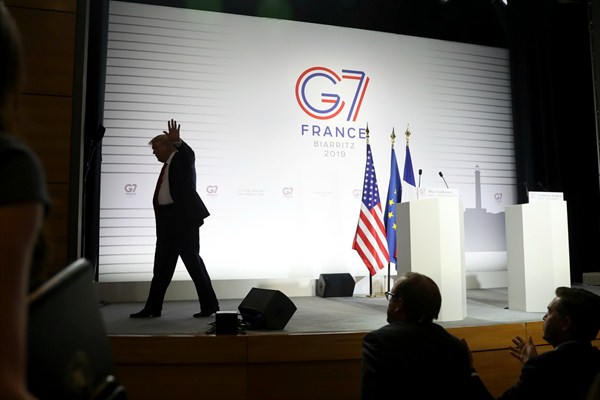Is restraint the answer to America’s foreign policy problems? The idea that the U.S. should avoid military interventions and rein in its global security commitments, instead emphasizing diplomacy and persuasion to advance its interests, has been steadily gaining ground over the past decade, helped along in that time by the failed U.S. wars in Iraq, Afghanistan and Libya. Now restraint seems like a grand strategy whose time has come.
In his column last week, Stewart Patrick discussed a recent book by three leading proponents making the case for restraint as the guiding logic of America’s engagement with the world. Barry Posen, the doyen of what can be called the restraint renaissance, discussed what restraint would look like in practice on WPR’s Trend Lines podcast in June. Earlier this year, Stephen Wertheim posited restraint as one of the two poles in the current U.S. foreign policy debate, with the other being “the new Cold Warriors,” a framing I discussed in a previous column.* And a recently launched think tank, the Quincy Institute, is dedicated to promoting restraint, or what it calls “responsible statecraft,” as the basis of American foreign policy.
There’s no real mystery about restraint’s appeal to foreign policy experts these days. To begin with, there are the increasingly obvious limits to America’s power that make the pursuit of primacy unsustainable, as Steven Metz discussed in a WPR column from November 2018 and Christopher Preble—one of the authors of the book mentioned in Stewart’s column—outlined in a WPR briefing as far back as March 2011. Those limits are only going to become more difficult to overcome as America’s relative power inexorably declines in the coming decades.

